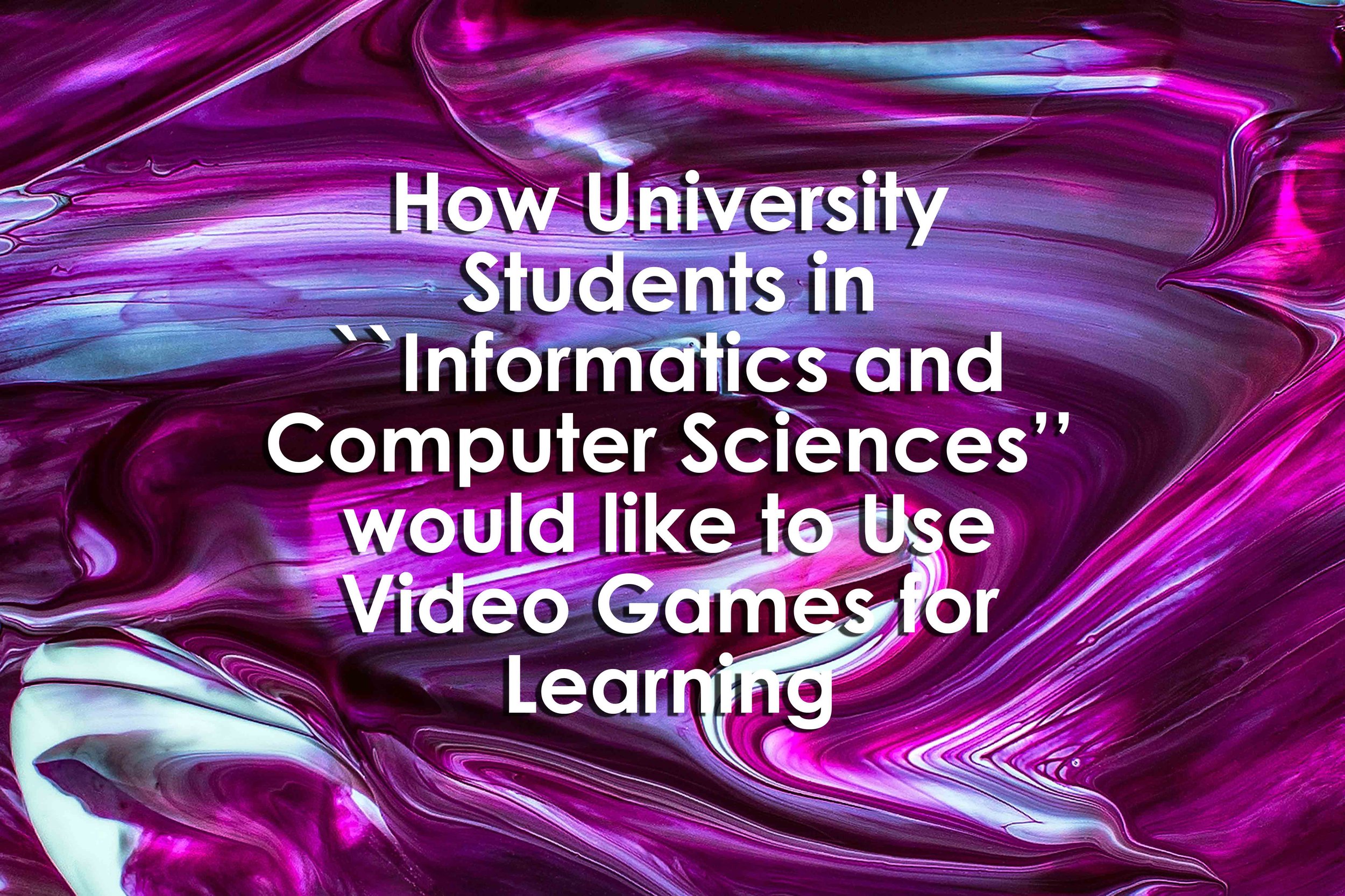How University Students in ``Informatics and Computer Sciences’’ would like to Use Video Games for Learning
How University Students in ``Informatics and Computer Sciences’’ would like to Use Video Games for Learning
How University Students in ``Informatics and Computer Sciences’’ would like to Use Video Games for Learning
By Albena Antonova, Boyan Bontchev, and YavorDankov
Abstract
“The game-based learning and serious games are researched mainly, especially in school education and lifelong learning. At the same time, in university settings, serious games and simulations are reserved for specific domains such as medicine, business, and engineering fields. Do University students from the Informatics and Computer Sciences Bachelor's Programs play games, how do they perceive game-based learning, and do they play video games for educational purposes? The present research investigates the IT students’ attitudes and perceptions of using video games for learning. The empirical study is based on the responses from 122 students from the Faculty of Mathematics and Informatics of Sofia University, Bulgaria. It is conducted in November 2021 and March 2022. A detailed questionnaire developed within the project APOGEE examines video game personalization and adaptation opportunities. On one side, it investigates the students’ dominating learning style (VARK) and playing style. On the other side, it surveys students’ preferences for using video games for learning and their attitudes about video game personalization. The discussion part reflects on the recommendations and key findings, proposing a conceptual model for smart services for lecturers and students, supporting learning personalization and game-based adaptation in University settings.”
Reference
Antonova, A., Bontchev, B., &; Dankov, Y. (2022). How university students in ``informatics and Computer Sciences’’ would like to use video games for learning. International Conference on Computer Systems and Technologies 2022. https://doi.org/10.1145/3546118.3546124 https://dl.acm.org/doi/abs/10.1145/3546118.3546124
Keyword
Video games, learning, computer science, students, game-based, research

